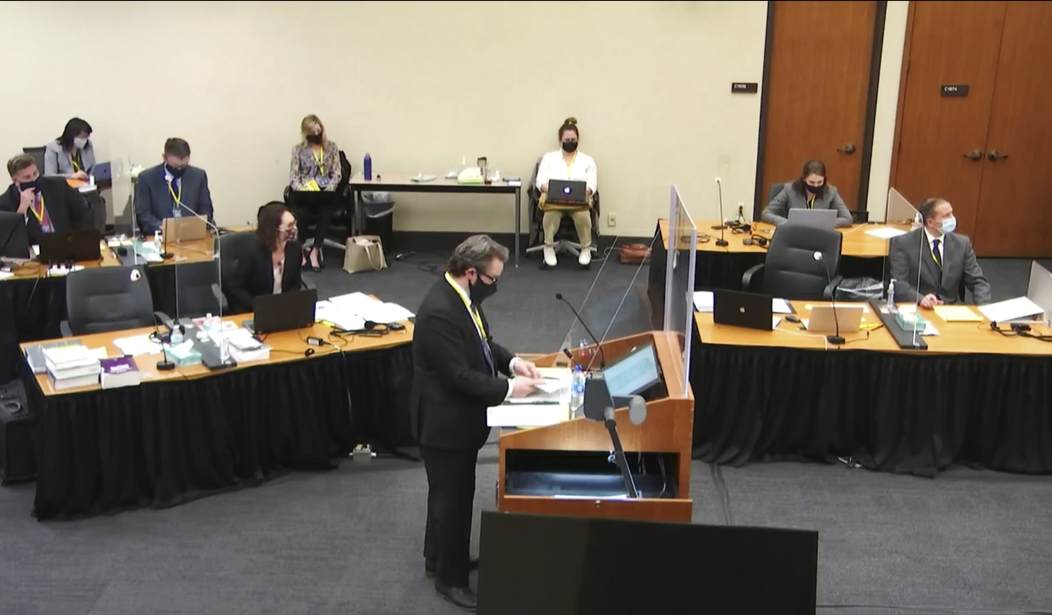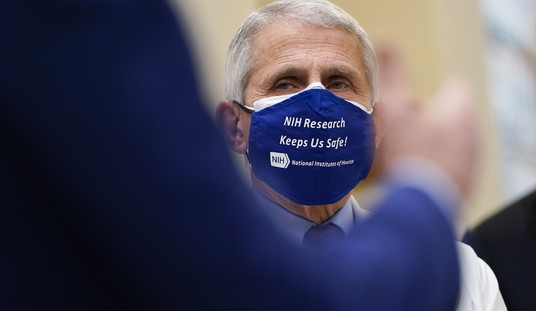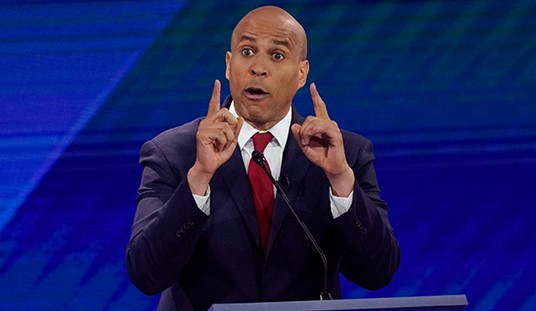In Part One of this effort, I focused on three specific matters which, if I was defending Derek Chauvin, I would be sure to emphasize in my closing argument. Those areas were:
- That the perspective of trained medical professionals and experts is of limited use in evaluating the actions of a police officer who does not have the same training and was not working with the benefit of videos, written reports, and full understanding of George Floyd’s medical problems.
- Repeatedly remind the jury that the prosecution’s own expert said Chauvin’s knee across Floyd’s back and neck played no role in the mechanism of Floyd’s death, and drive home the idea that the prosecution purposely misled the jury by making so much of the position of Chauvin’s knee with the witnesses at the scene and the use of force experts. They knew their primary medical expert on “cause of death” would say the position of his knee was not relevant.
- Emphasize that the prosecution has changed their theory about what caused Floyd’s death in order to justify the inflammatory evidence they wanted to present. First, it was a “blood choke” — cutting off blood flow to Chauvin’s brain — when they wanted the MMA-trained witness to testify about what he saw. Next, it was an asphyxiation choke when they wanted “use of force” experts to testify that Chauvin cut off Floyd’s breathing with his knee across Floyd’s neck. The medical experts testified that neither such thing happened — but only AFTER the prosecution got the prejudicial and irrelevant testimony from the other witnesses first.
Fourth, Chauvin’s attorney was able to mention a couple of times on the record something that I hoped he would be able to get into evidence — that being the fact that information about expert opinions and other evidence in the case was continually being provided to him while the trial was underway, long after it was supposed to be delivered to him by the prosecution.
He needs to take some time to show the jury that the entire process has been unfair and unethical. The prosecution has helped in this regard by using multiple prosecutors to examine witnesses. There was no need for that. The operative facts, in this case, covered a grand total of about 18-20 minutes — from Chauvin’s first contact with Floyd up through Floyd being loaded in the ambulance and being driven away. There is nothing about this case — with only 12 days of witness testimony in the prosecution’s case — that required more than one prosecutor.
I’m certain that Nelson’s solitary presence every day seated alone at the table with Chauvin has been meant as a “David v. Goliath” portrayal for the jury’s benefit. I’m also certain that there are attorneys outside the courtroom who are helping Chauvin with the case every day. But he should criticize the government for its approach to the case and ask the jury why all these resources are necessary when the case is not very complicated. Could it be that the prosecution recognizes the weakness of their case, and they are trying to mask that by overwhelming the single solitary defense attorney battling back against them? With so many attorneys working on the case, why did materials related to witness testimony reach him so late so often?
He should point out that given the resources thrown at Derek Chauvin, it seems reasonable to expect that the case they assembled would be airtight. Has it been airtight? If this is the best they could do with all the time, manpower, and resources they have spent, was the purpose for doing so more about trying to cover up a fatally flawed case than proving the charges against Chauvin?
The prosecution would do Nelson and Chauvin another huge favor in this regard if they used more than one prosecutor to give the closing argument. This is rarely done — many judges I’ve tried cases in front of would never consider such a request. But, based on everything I’ve seen so far from Judge Cahill’s Minnesota courtroom, I can’t dismiss the idea that the prosecution might ask and he might say okay.
Finally — not because there isn’t more but only because I’ve run out of time and I did not see some parts of the trial — he needs to mock the dismissal by the prosecution’s experts of the impact of the Fentanyl in Floyd’s system. The Medical Examiner paid by the taxpayers of Hennepin County told the police that if Floyd had died alone at home, he would have ruled it an accidental overdose based on the lethal level of Fentanyl in his blood.
Yet in the face of that, the prosecution has brought in expert after expert to claim that the Fentanyl is really a non-issue, and it played no role in the fact that George Floyd simply stopped breathing in the middle of the street even though one of the primary pharmacological effects of Fentanyl is to suppress respiration.
He needs to go expert by expert and point out individually the manner in which each one dismissed the Fentanyl as a contributing factor in Floyd’s death. On the claim that Floyd had built up a tolerance for the drug, having been a long-time abuser, there is no actual evidence of that. There was no scientific way to determine Floyd’s “tolerance” level for Fentanyl by post-mortem examination. Any testimony in that regard was pure speculation to give cover to the experts who needed to discount the presence of Fentanyl in Floyd’s blood in order to increase the significance of the force used against Floyd by Chauvin and the other officers.
But, most significantly, I would hammer home one key point about Fentanyl and Dr. Tobin.
Dr. Tobin testified that he discounted the significance of the Fentanyl as having been a factor contributing to Floyd’s suppressed respiration because Fentanyl has its most significant impact on respiration about five minutes after it is consumed. Since Floyd’s encounter with the police lasted more than 15 minutes before he died, the Fentanyl in his system was already well past the point where it would have had its greatest effect in terms of suppressing his breathing when that happened. That allowed Dr. Tobin to focus on the other factors — the conduct of the officers — which was taking place in the moments before Floyd’s death.
But on cross-examination, Dr. Tobin admitted that he was unaware of the partially chewed Fentanyl tablets found in the back of the patrol car, which was tested and found to have Floyd’s saliva on them by a DNA match. Floyd was removed from the squad car and placed face down on the street for 9 minutes. At about the middle of that period of time would have been the point at which the Fentanyl that he managed to consume — and no one knows how much that might have been — would have been having its maximum effect in suppressing his respiration. By the clock, that is about the same time Dr. Tobin identified as Floyd having stopped breathing in the street.
The key to this point is that Dr. Tobin was never made aware by the prosecutors of the Fentanyl tablets found in the rear of the police car. The DNA testing proving they had been in Floyd’s mouth was done in February, but in the 60 days thereafter Dr. Tobin was not given that information. I would ask the jury to consider why that was held back by the prosecutors? Was it because they knew it would alter Dr. Tobin’s opinion about the mechanism of Floyd’s death? The defense asked that the patrol car be searched and that the tablets be tested — not the prosecution. If it hadn’t been for the defense, that evidence would have never been part of the case.
But the prosecution controlled what information was given to the prosecution’s experts, and on this one key piece of evidence that would impact Dr. Tobin’s opinion, the prosecutors chose to not give that information to him. Why?
I’m going to wrap it up on that note. I will be watching the closing arguments tomorrow, and offer my comments on them in a story to be published on Tuesday morning.














Join the conversation as a VIP Member